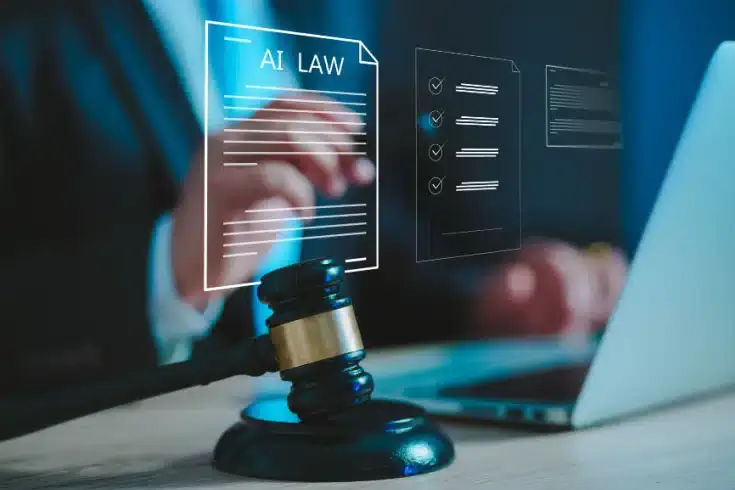An Attorney Explains How to Create Terms of Use for Web Services and More (Part 2)

With the recent proliferation of smartphones, the demand for internet-based services such as social networking sites, online games, and various download services has increased. Every one of these services has something called a ‘Terms of Use’ created for it.
When launching a new web service, there are instances where the terms of use from other companies offering similar services are borrowed and casually modified. However, each web service has its own unique features. If you create terms of use without considering these points, you may suffer unexpected damages due to complaints from users.
In this article, we will explain how to create terms of use and points to note when creating them, while introducing sample clauses.
https://monolith.law/corporate/points-of-user-policy-firsthalf[ja]
What are Terms of Use?
The “Terms of Use” refer to the rules for using a service, which are organized and written down by the service provider for the users.
Terms of Use are created for various businesses, but they are often created for services on the Internet, such as social networking services (SNS) and cloud-based services, also known as web services.
The mechanism is that the service provider creates the Terms of Use, and when the user agrees to them and starts using the service, a contract is established between the service provider and the user according to those Terms of Use.

How to Properly Create Terms of Use
When creating terms of use, you can refer to a certain extent to a “template”. However, at the end of the day, the terms of use are a contract between the service provider and the user regarding the web service, etc., which sets the rules. Therefore, the specific content will inevitably vary depending on the service.
In this article, we will introduce clauses that can be used as a “template” to a certain extent, excluding parts that should be customized for each service.
Suspension of Services
(Suspension of Services)
Article X
1. We may suspend or interrupt all or part of the services without prior notice to registered users in any of the following cases:
(1) When regular or emergency inspection or maintenance work is required for the computer system related to the services
(2) When computers, communication lines, etc. have been stopped due to an accident
(3) When the operation of the services becomes impossible due to force majeure such as fire, power outage, natural disasters, war, riots, civil disturbances, enactment or abolition of laws and regulations, orders by public authorities, or disputes
(4) When troubles, interruption or suspension of service provision, suspension of linkage with the services, or specification changes occur in external SNS services
(5) In other cases where we deem it necessary to suspend or interrupt the services
2. We may terminate the provision of the services at our discretion. In this case, we will notify registered users in advance.
3. Registered users shall investigate at their own responsibility and expense whether the use of the services violates any applicable laws, internal rules of industry associations, etc., and we do not guarantee in any way that the use of the services by registered users complies with any applicable laws, internal rules of industry associations, etc.
4. We shall not be liable for any damages incurred by registered users based on the measures taken by us under this Article.
In web services, there may be times when it is necessary to interrupt or suspend services, such as when the server is under excessive load or maintenance is required. It is important to be prepared for such situations by being able to suspend or interrupt the provision of services at will.
Ownership of Rights
(Ownership of Rights)
Article X
1. All ownership and intellectual property rights related to our website, our app, or this service belong to us or those who have granted us a license. The license to use this service based on the registration stipulated in these terms does not imply a license to use the intellectual property rights of us or those who have granted us a license related to our website or this service. Registered users shall not engage in any activities that may infringe on the intellectual property rights of us or those who have granted us a license for any reason (including reverse assembly, reverse compilation, and reverse engineering, but not limited to these).
2. The rights to the text, images, videos, and other data and content that registered users have posted or otherwise transmitted on our website or this service shall be reserved by the registered users, and we shall be able to use them freely and without charge (including reproduction, copying, modification, re-licensing to third parties, and all other uses).
When accepting content submissions from users, it is impossible to completely prevent the inclusion of content that infringes on the rights of third parties. However, if such potentially infringing content is left unattended, the service operator may be asked to take action by the rights holder, and in some cases, may face the risk of being sued. To minimize such risks, we have obtained a promise in paragraph 1 that the posted content does not infringe on the rights of third parties.
Paragraph 2 stipulates the copyright of the content posted by users. If nothing is stipulated in the terms of use, the copyright of such content does not transfer to the service operator or is not licensed for use. Therefore, in order for the service operator to use the information such as the content posted by the user, it is necessary to either ⓐ receive the rights from the user or ⓑ receive permission to use the rights from the user. In paragraph 2, we have secured the right to use the posted data according to policy ⓑ.
(Cancellation of Registration, etc.)
Article X
1. We may temporarily suspend the use of this service for a registered user and cancel the registration as a registered user without prior notice or demand if the registered user falls under any of the following items:
(1) In case of violation of any provision of these terms
(2) If it is found that there are false facts in the registration information
(3) If the service is used or attempted to be used for a purpose or method that may cause damage to us, other registered users, external SNS operators, or third parties
(4) If the registered user has violated the external SNS terms of use or for other reasons, the registered user can no longer receive the provision or cooperation of the service from the external SNS operator
…(omitted)…
2. If the registered user falls under any of the items in paragraph 1 of this article, the registered user shall lose the benefit of the term for all debts owed to us and shall immediately pay all debts to us.
If there are no rules in these terms of use for dealing with users who violate the rules, including prohibitions, the service operator can only respond by canceling the contract due to breach of contract or claiming damages. Cancellation of the contract is not realistic as a penalty for minor violations, and if a claim for damages is made, problems such as the occurrence of litigation costs and a decline in service reputation may arise, neither of which can be said to be the best response.
Also, it is often the case that users who use the service frequently end up violating the terms of use, so it is not advisable from a business perspective to exclude them from the service just for minor violations. Therefore, paragraph 1 sets a step-by-step penalty of temporary suspension of service use → cancellation of registration, and is stipulated to be able to respond flexibly depending on the situation.

Disclaimer and Damages
(Denial of Guarantee and Damages)
…(omitted)…
3. If our company receives any claim from other registered users, external SNS operators, or any other third parties due to infringement of rights or any other reasons related to the use of this service by the registered user, the registered user must compensate the amount that our company was forced to pay to the third party based on the claim.
4. Our company shall not be liable for any damages suffered by the registered user in connection with this service. However, even if our company is liable for damages to the registered user due to the application of the Japanese Consumer Contract Law or any other reasons, regardless of the provisions exempting our company from liability for damages, our company’s liability for damages shall be limited to the amount paid by the listener member to our company for a period of one month retroactive from the time the cause of damage occurred, and for artist members, the amount received by the artist member from our company for a period of one month retroactive from the time the cause of damage occurred. If there is no monetary transaction between the registered user and our company for a period of one month retroactive from the time the cause of damage occurred, the limit will be 100 yen.
5. If the registered user delays the payment of the fee stipulated in this article, the registered user shall pay our company a late payment fee at a rate of 14.6% per annum (calculated on a 365-day basis).
In content-providing services, it is common to prohibit users from distributing downloaded content to third parties or publishing it on the Internet. However, if a user engages in such activities, the operator may be liable for damages to the infringed party. Anticipating such situations, Article 3 stipulates the circumstances under which the user is liable for damages to the operator.
Article 4 stipulates the operator’s disclaimer. The Japanese Consumer Contract Law states that provisions that exempt the operator from all damages caused by non-performance of obligations, or provisions that partially exempt the operator from liability for damages in cases of intentional or gross negligence, are invalid. Therefore, disclaimers stating “our company is not responsible at all” may be invalid. Considering these points, how to stipulate the operator’s responsibility in the terms of use is an important issue. This article stipulates in the first part that the operator is not liable for damages as a principle, and in the second part, it stipulates the maximum amount in case the operator is exceptionally liable for damages.
Article 5 stipulates the late payment fee in case the user delays the payment of the service usage fee.
Validity Period
(Validity Period)
Article ○
1. The user agreement takes effect on the day the registration of the user is completed in accordance with Article 3, Paragraph 5, and remains valid between our company and the registered user until the earlier of the day the user’s registration is cancelled or the day the provision of this service ends.
This stipulates the validity period of the terms of use between the user and the business operator. Generally, it is from the day the user registers until the day the user withdraws or for some reason their registration is cancelled, or until the day the service provision ends.
Transfer of Status
(Transfer of Contractual Status Based on These Terms)
1. Users may not transfer, move, pledge, or otherwise dispose of their contractual status or rights or obligations under these terms to a third party without our prior written consent.
2. If we transfer our business related to this service to another company, we may transfer the contractual status, rights and obligations under these terms, and registration information and other information related to the user to the transferee of the business transfer. Users are deemed to have agreed in advance to such a transfer in this clause. This clause includes not only ordinary business transfers but also company splits and all other cases where the business is transferred.
If registered users are allowed to freely transfer their status as users, it would be very inconvenient for user management. Even if there is no provision like the first paragraph, Japanese law requires the consent of the other party to the contract for the transfer of contractual status, but it is common to confirm this in the terms of use. On the other hand, as a service operator, there may be a need to transfer the operation of the service to a third party due to mergers or business transfers. In such cases, it is cumbersome and unrealistic to obtain individual consent from each user, who is the other party to the contract.
Therefore, as in the second paragraph, it is desirable to stipulate in the terms of use that the service operator can transfer the contractual status to the transferee of the business when the service operator transfers the business, and that the user agrees in advance to the transfer of such contractual status.
Governing Law & Jurisdiction
(Governing Law and Jurisdiction)
Article X
1. The laws of Japan shall govern these Terms and Conditions, and any and all disputes arising out of or in connection with these Terms and Conditions shall be subject to the exclusive jurisdiction of the Tokyo District Court or the Tokyo Summary Court as the court of first instance.
In the course of operating the service, it is conceivable that some kind of trouble may arise between the user and us, which could escalate into litigation. However, users of web services are not limited to Japan, but exist all over the world. Therefore, if a dispute arises with a foreign user, the question arises as to which country’s laws apply and in which country’s court the dispute will be settled.
Therefore, this clause stipulates the governing law and jurisdiction in the event of a dispute. As a general rule, the location of the service operator’s head office is typically used as the basis.
Summary
In this article, we have provided explanations about the penalties for violating the terms of use and about damages compensation. The quality of the terms of use can significantly affect the resolution of similar cases, so it is important to create terms of use that contain appropriate content.
Contract Creation and Review Services by Our Firm
At Monolith Law Office, as a legal firm with strengths in IT, Internet, and business, we offer various services such as the creation and review of contracts, not only for web services but also for our client companies and advisory companies. If you are interested, please see the details below.
Category: IT
Tag: ITTerms of Use





















